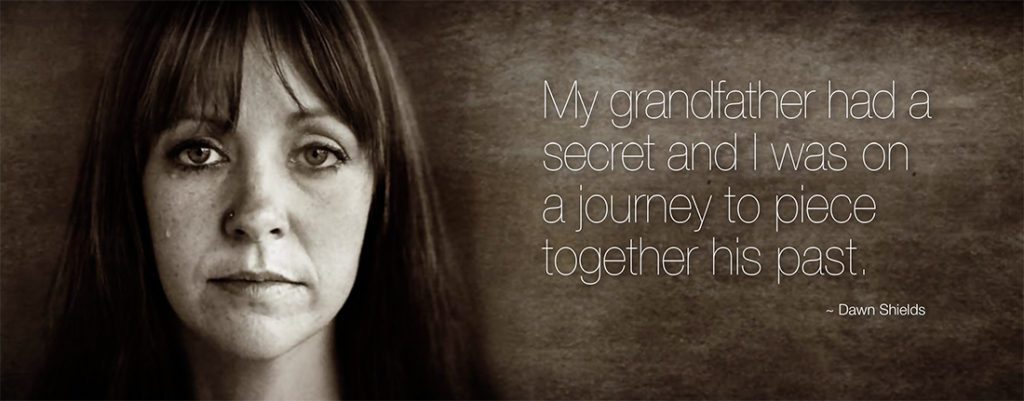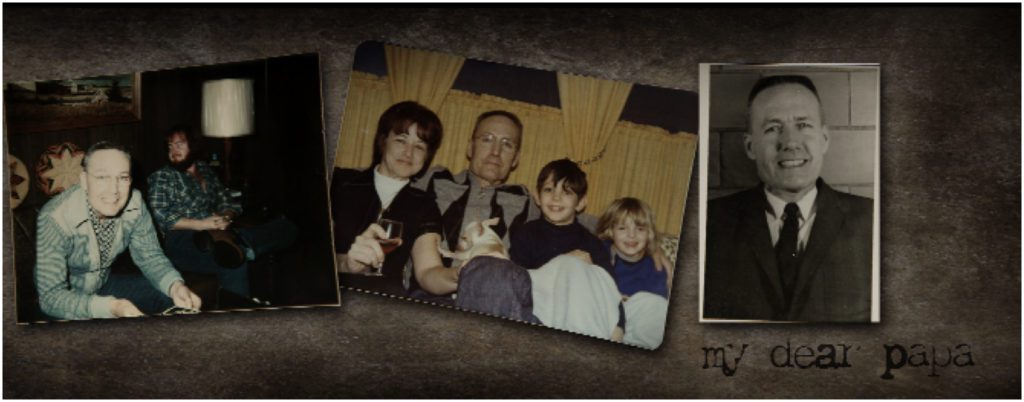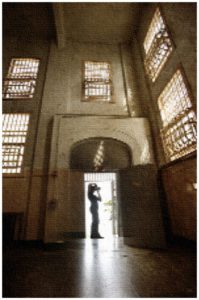My grandfather had a secret and I was on a journey to piece together his past.
Grandpa Jack was estranged from his father at an early age. When he was eleven, he was sent to a reformatory, when he was thirteen, he was living on the streets stealing food to survive.
By Matt Kramer (Story originally ran in ADistinctiveStyle Magazine)
Dawn Shields started documenting the life of her grandfather after getting a call from her sister saying: “You’re not going to believe what I found out. I just Googled Grandpa Jack’s name and found out that he was inmate number 942 in Alcatraz!”
John Raymond Kahl Jr., known to Dawn as “Papa Jack,” had a secret life that she had never known about—he was a killer.
As a girl, Dawn Shields knew that her grandfather had spent some time in jail. The story she heard was that he had been in a bar fight, and someone had died but he didn’t spend too much time in jail because he was fighting in self-defense.
She didn’t know that Papa Jack had a rap sheet (a list of a criminal’s offenses) that was the same size as Al Capone’s. He had been incarcerated in several prisons, made seven prison escapes; eleven suicide attempts were taken to Alcatraz Island in 1952. His prison career spanned twenty-five years, up until Dawn was twenty-one.

When he wasn’t escaping, Papa Jack was such a model prisoner that he would occasionally be granted a furlough and would come home for the weekend. Grandmother would invite the family to come to visit; Shields would come into the house and see her grandfather relaxing in an easy chair; she never knew that on Monday, he would be living in a prison cell.
Describing Papa Jack, Shields said, “My papa was, for me, the most consistent, strongest man in my life … you never felt you knew everything about him. While I didn’t know he was in Alcatraz, I wasn’t surprised. I wanted to know more, I needed to understand why he was there, what had happened that put him in that place.”
One of Shields’ best friends, renowned wedding photographer Bambi Cantrell said, “Dawn, you’ve got to make a story out of this!” At that point, she started to consider making a photo album about her grandfather. Shields, who is one of the most respected portraits and wedding photographers in the field, had a wedding to photograph in San Francisco, a short ferry ride away from Alcatraz that was coming up. As long as she was going to be there anyway, she decided to begin her journey to find out more about Papa Jack.
When she got to the prison, she read through the files and began piecing together a hidden past of a grandfather she loved dearly. “He kept his past fairly hidden from all of us,” she says. She asked to see his cell, took some photos and went home.
After she returned home and looked at the photos, she felt that something was missing. She realized that her visit to Alcatraz was as a granddaughter; she had to go back as a photographer and dig deeper into Papa Jack’s life. On the second visit, she knew that she had to look at his life from his side of the cell.

Shields had huge, difficult questions to answer. She didn’t know how to reconcile with the man who showed her such love, with someone who spent two and a half decades in prison. Her perception was that he was someone who truly wanted her to be happy and he seemed to be really attuned to her feelings and needs. He was the best male role model she had ever known. Yes, he was complicated but he only showed her love.
He even made sure that she had the kind of makeup she wanted, especially when she first left home and was struggling to build her own life. He told her that if she ever had any problems with anybody, he would take care of it. In retrospect, she was glad she never took him seriously on that offer.
 Over the course of six months, while putting the album together, Dawn went through some very difficult times. She would get headaches and feel sick to her stomach. Looking through the album would bring out different emotions — frustration, anger, and sadness. There were even times when she didn’t ever want to look at the album again.
Over the course of six months, while putting the album together, Dawn went through some very difficult times. She would get headaches and feel sick to her stomach. Looking through the album would bring out different emotions — frustration, anger, and sadness. There were even times when she didn’t ever want to look at the album again.
When asked to sum up how making Papa Jack’s album impacted her, Shields replied;
“The biggest thing I learned was; whether we want to or not, we are all guilty of judging people. We weigh what they wear, what they weigh, what they drive. When you learn something about the most rock-solid person in your life, the only person who loved you unconditionally; it makes you stop judging so much.”
 “Everyone has their own battles to fight on some level. Many will look wrong in society’s eyes, but you never know what took them to that place in life. I think Papa Jack had a hard time thinking people could love him. Anyone who has dealt with that kind of rejection from such a young age will always question love,” Sheilds tells us. “Papa Jack always treated us like gold; if you showed him, love, you received love.”
“Everyone has their own battles to fight on some level. Many will look wrong in society’s eyes, but you never know what took them to that place in life. I think Papa Jack had a hard time thinking people could love him. Anyone who has dealt with that kind of rejection from such a young age will always question love,” Sheilds tells us. “Papa Jack always treated us like gold; if you showed him, love, you received love.”
Given the lack of a role model in his life, the harsh life he endured on the street and having to deal with a traumatic experience at the reformatory, it makes sense that he wrestled with demons.
“I had to reconcile. How can I love someone who hurt other people? Is it ok for me to love him? It’s a strange place to be. Jack was clearly meant to be in my life and everyone deserves love.”
Dawn Shields’ won the award for her grandfather’s story entitled “Legacy,” at the 2010 WPPI annual conference. When they announced her name it brought the crowd of over 2000 photographers to a standing ovation. The Wedding & Portrait Photographers International is one of the most prestigious associations for professional photographers.
Dawn says;
“Everyone has stories about their family that they may be embarrassed or ashamed of. I made peace with my past, so I was okay showing my story to people. Since the WPPI, people have been emailing me and telling me that they are going to do personal projects. A photographer told me that she wants to do a story on autism because she photographs her autistic brother. I know this has made an impact on others.”
To find out more about Dawn Shield go to her Social Media sites;




